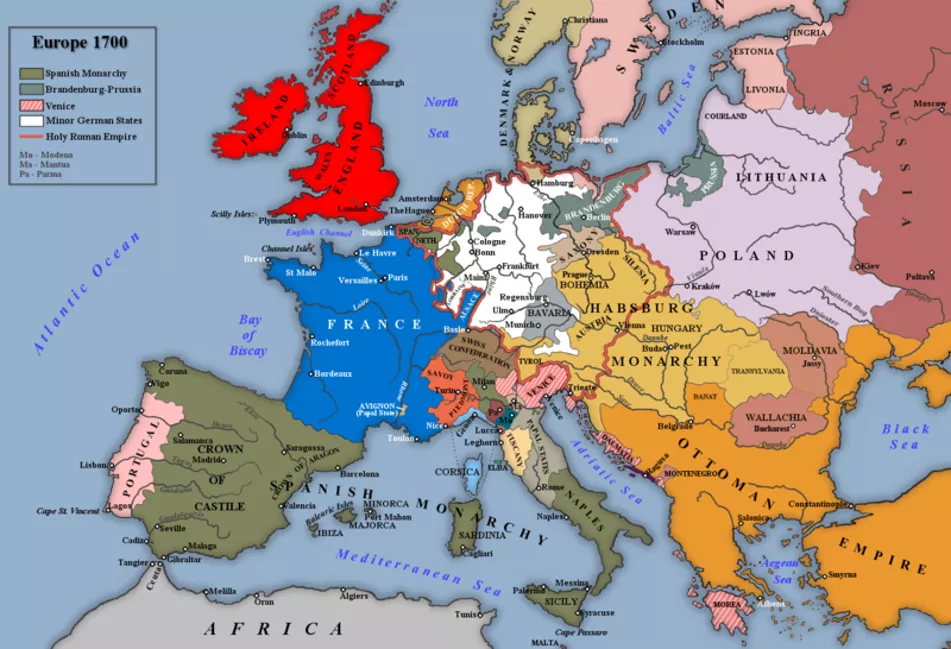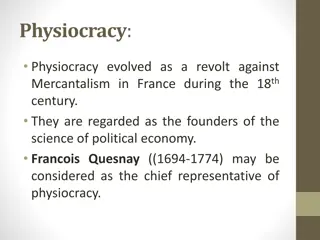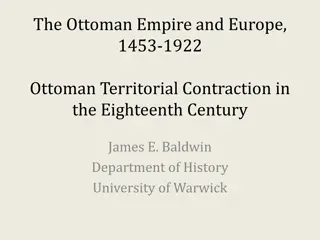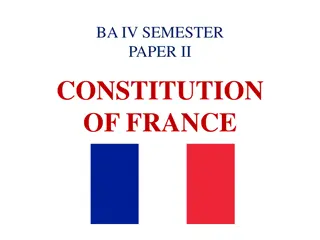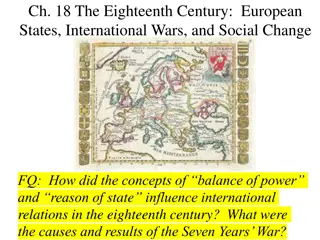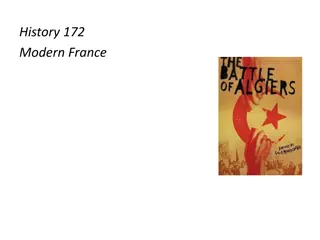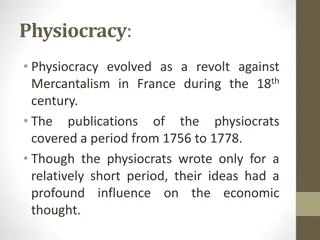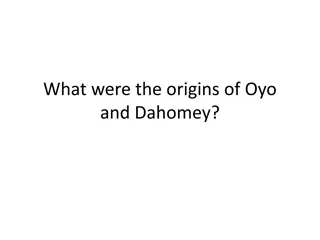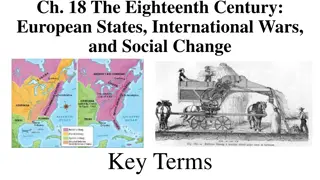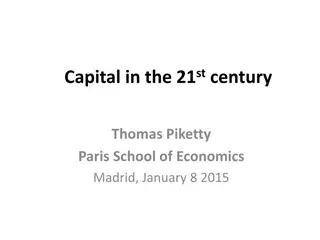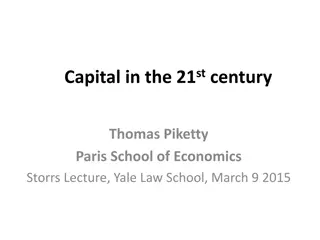Global and Economic Origins - 18th Century France
Investigate the global and economic origins of 18th-century France, exploring major events, power dynamics, transnational networks, and the impact on the French Revolution. Examine the historiography from economic causes to global financial origins, challenging orthodox Marxist interpretations and embracing the global turn in historical analysis.
Download Presentation

Please find below an Image/Link to download the presentation.
The content on the website is provided AS IS for your information and personal use only. It may not be sold, licensed, or shared on other websites without obtaining consent from the author. Download presentation by click this link. If you encounter any issues during the download, it is possible that the publisher has removed the file from their server.
E N D
Presentation Transcript
Global and Economic Origins RONAN LOVE r.love.1@warwick.ac.uk
18C France and the Global Scene Great Power Competition Rivals: Holy Roman Empire, Prussia, the Habsburg Monarchy, the Dutch Republic, Britain Major Transcontinental Wars: War of the Spanish Succession from 1701-1714 War of the Austrian Succession from 1740-1748 Seven Years War from 1756-1763 American Revolutionary War from 1778- 83
18C France and the Global Scene Exchange of Ideas and Transnational Networks Source: C. Th r , Economic Publishing and Authors, 1566-1789 in Studies in the History of French Political Economy: From Bodin to Walras, ed. G. Faccarello (London: Routledge), 15.
Global networks, French authors: Top 10 ranking authors by sales to metropolitan France from the Soci t Typographique de Neuch tel between 1 January 1780 to 5 May 1789.
The Historiography: From Economic Causes to Global Financial Origins Do origins = causes? What sort of claim is being made when historians talk about the Revolution s origins ? Hunt on the global vs internal financial crisis: the size of the deficit, an inability to pay the interest on the debt, the failure of efforts to rationalize and equalize taxation, the limitations of the financial administration, or the reluctance of the king s government to develop accountability to the public [were] essentially internal causes of the fiscal crisis. While it would be foolish to downplay their significance, especially when taken together, a global perspective casts them in a different light and offers a more convincing explanation of the origins of the French Revolution. Hunt, The Global Financial Origins of the French Revolution in Desan, Hunt, Nelson (eds.), The French Revolution in Global Perspective (Cornell, 2013), p. 32.
The Historiography: From Economic Causes to Global Financial Origins Orthodox Marxist Interpretation (Soboul, Mathiez, Lefebvre) Revisionist Challenge (Cobban, Doyle) Linguistic/Cultural Turn (Baker, Furet, Chartier, Ozouf) The Global Turn Global Economic and Financial Origins (Lynn Hunt, Gail Bossenga) Global Commerce and Consumption (Paul Cheney, Michael Kwass, Daniel Roche) Global Politics (Annie Jourdan, Manuela Albertone) Saint-Domigue, the Colonies, and their Influence on Metropolitan France (Pierre Serna, Manuel Covo, Fr d ric R g nt)
The Historiography: From Economic Causes to Global Financial Origins The Historiography: From Economic Causes to Global Financial Origins Orthodox Marxist Interpretation (Soboul, Mathiez, Lefebvre) Revisionist Challenge (Cobban, Doyle) Linguistic/Cultural Turn (Baker, Furet, Chartier, Ozouf) The Global Turn Global Economic and Financial Origins (Lynn Hunt, Gail Bossenga) Global Commerce and Consumption (Paul Cheney, Michael Kwass, Daniel Roche) Global Politics (Annie Jourdan, Manuela Albertone) Saint-Domigue, the Colonies, and their Influence on Metropolitan France (Pierre Serna, Manuel Covo, Fr d ric R g nt)
1. Debt to GDP of France and Britain, 1787 Debt and Default 200% 180% 160% 140% 1. The problem in 1788: 51% of France s yearly revenues went towards paying off interest on the debt. 120% 2. Solving the problem: the monarchy had defaulted several times in the eighteenth century. 100% 80% First in 1716 (Philippe II, Duke of Orl ans, Regent of France) then in 1759 (Louis XV) again in 1763 (Louis XV) and finally in 1770 (Louis XV). 60% 40% 20% 0% France Britain Source: Eugene White, "Retour sur les Origines Financi res de la R volution Fran aise." Annales Historiques De La R volution Fran aise, no. 356 (2009), p. 198.
The Financial Crisis of the State: What Made France Unique? Why were the interest rates on French debt so high? Why did the King not simply default on his debts as he had done in the past? Why not create more taxes/reform the financial administration?
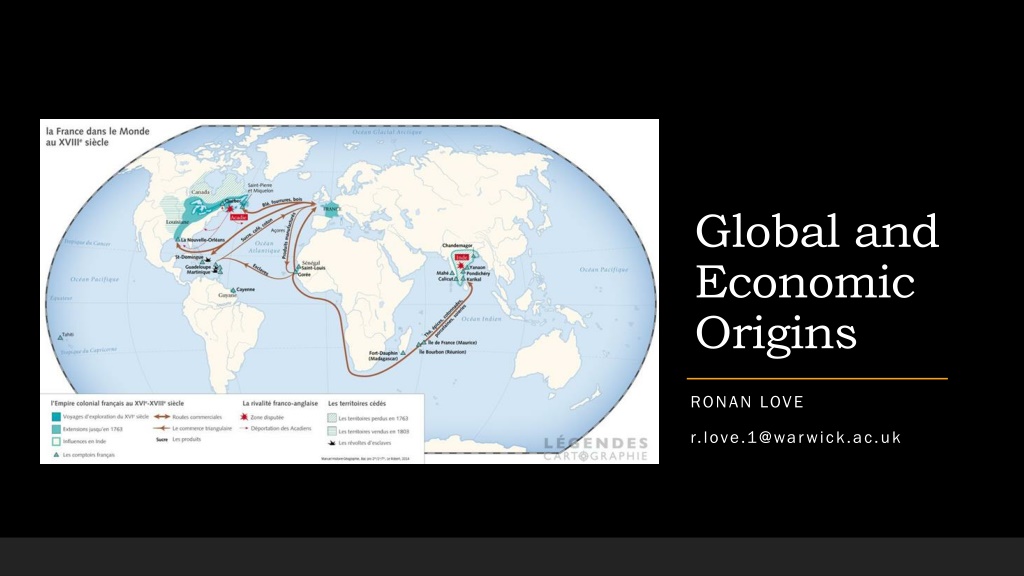
 undefined
undefined









